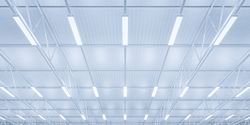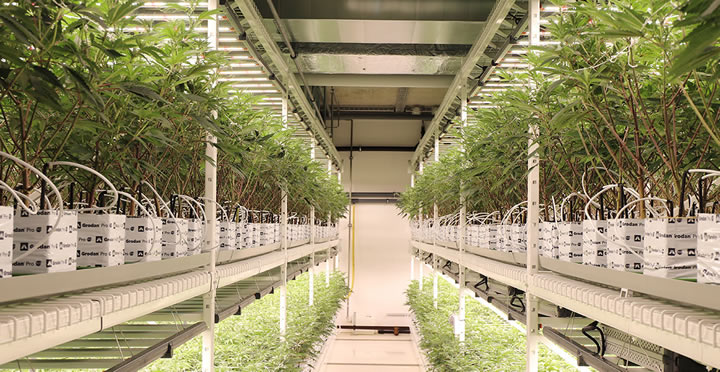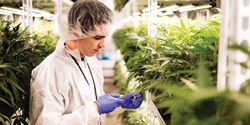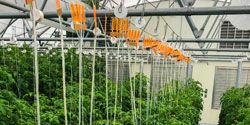Lighting Solutions for Horticultural Applications
Luminaires for plant researchers are designed for the grower to adjust the light to reach their goals. Researchers need flexibility in spectrum and intensity as well as precise control to create reliable experiment conditions.
4 Things To Consider When Comparing LED Lighting Systems
Although many of the currently available LED fixtures look similar and often utilize many identical components it is still important to fully explore performance metrics when evaluating lighting options.
Lighting the Way to Sustainable Agriculture
In the grow, 16 ft. towers holding layers of hydroponic beds maximize their growing space and minimize waste production to as low as 5%, and with a reliance on hydropower, no excess C02 is released into the atmosphere.
Lighting Uniformity in Horticulture
Lighting uniformity in architecture has been a topic of interest for at least seventy years (e.g., IES 1947), where the goal is to encompass the range of illuminance values measured at an array of positions on a horizontal plane, all in a single metric.
How Can Smart Technology Benefit Vertical Farms?
Smart technology can benefit many industries and application areas. IoT (specifically sensors), smart systems used to control and monitor conditions, drones, and predictive analytics are all hugely beneficial, particularly for the vertical farming sector.
+14-28% Boost in Winter Strawberry Trial
In this study, the influence of spectral conversion under UbiGro quantum dot (QD) luminescent greenhouse films on plant growth and fruit yield of strawberries grown during winter was investigated.
A Guide To Horticultural Lighting
Artificial lighting is essential for growing plants indoors. This guide will walk you through the basics of understanding commercial horticultural lighting and things to take into consideration when shopping for fixtures.
The Taste Race: Light's Impact on Crop Aromatic and Flavour Profiles
As consumers choose between purchases based on odours, colours and textures, the manipulation of light spectra could open up another door to richer aromatic and flavour profiles.
The Importance of DLI and Light Quality
Different plants require a different amount of light for healthy crop production. High-light crops, such as tomatoes, peppers, and cucumbers require a high Daily Light Integral (DLI). Both their quality and yield depend on them getting enough light throughout the day.
HYBRID LIGHTING STRATEGIES: ADVANTAGES, DISADVANTAGES AND GETTING STARTED
Research on the ideal lighting for greenhouse cultivation reveals a fundamental truth: LED systems are far more efficient and effective than their HPS counterparts.
7 Strategies to Improve Cannabis Lighting
While there are lighting fundamentals that apply no matter what type of facility growers are operating, there are certain strategies that indoor growers must use to be successful that are different than approaches greenhouse growers take.
Innovating Ag-Lighting
Architects, lighting designers and former NASA engineers detail new bio-driven lighting solutions for advanced sustainable indoor agriculture.
The One Thing You're Probably Overlooking in Your Greenhouse
The cost of natural sunlight is an important thing for producers to understand because there is an economic value that they should be placing on sunlight. It's one of the main inputs to production!
Let There Be Light
What if I told you that your canopy wasn't as effective as it could be? What if you couldn't see it, but each day so many photons that we can't even quantify them, were going from your roof or your lights right through to the ground.
Novel Quantum Dot Optical Fiber Technology That Delivers Extra Light to the Lower Canopy of Plants
Hung above plants in a greenhouse, the fiber concentrator devices absorb underutilized portions of sunlight, convert the energy into a more ideal spectrum, and then strategically guide that light to the lower leaves of plants.
Records 1 to 15 of 28
Featured Product

iglide® Q3E - two-component, high-load bearings for heavy-duty use
In this iglide® multi-component bearing, the outstanding tribological properties of iglide® Q3 are embedded in a high-strength jacket. The result is an even higher mechanical load capacity with simultaneously low wear, perfect for heavy-duty applications in harsh environments.

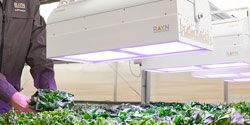



.jpg)



